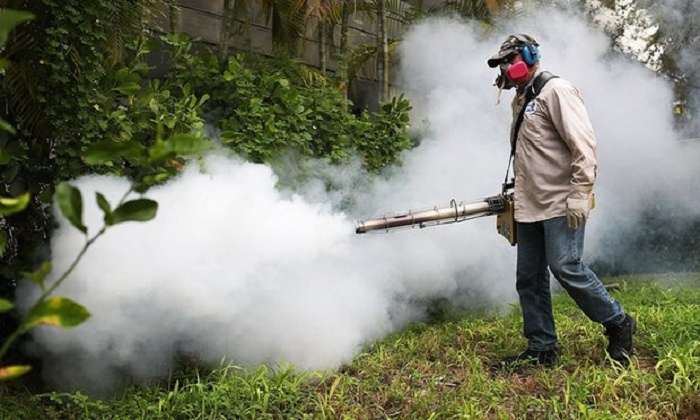Also on Friday, the US Food and Drug Administration (FDA) issued a revised guidance recommending universal testing of donated blood for Zika virus in the US and its territories.
The Maryland study, published in the weekly report on death of disease by the US Centers for Disease Control and Prevention (CDC), suggested sexual transmission of Zika is no less likely in asymptomatic individuals than in others with symptoms.
Recommendations for preventing sexual transmission of Zika in returning travelers now differ depending on whether the returning traveler is symptomatic and on whether the couple is planning to become pregnant. That may need to be changed.
Separately, health officials in Puerto Rico have reported as many as 10 people who developed the paralyzing neurological disorder known as Guillain-Barré syndrome as a result of Zika infections.
The latest studies add to the evolving picture of the impacts of Zika, a virus previously considered to be mild but which has recently been shown to cause the serious birth defect known as microcephaly, as well as neurological illness in adults. In Puerto Rico, where Zika arrived in December 2015, health officials have been systematically tracking cases of Guillain-Barré following reports in other countries showing an increase in cases related to Zika.
Overall, the surveillance system identified 56 cases of the syndrome in people infected from 1 January to 31 July 2016, officials from the Puerto Rican health department and the CDC reported on Friday.
Guillain-Barré is an autoimmune disorder which causes gradual weakness in the legs, arms and upper body, and in some cases, temporary paralysis. The body attacks itself in the aftermath of an infection, typically occurring in the days following an illness.
Of the cases in Puerto Rico, 34 patients had evidence of a flavivirus infection, such as Zika, dengue or chikungunya, and 10 had confirmed Zika virus infections. Diagnostic tests cannot easily discern Zika from related infections, but health officials suspect nearly all of the flavivirus infections seen were related to Zika because that is the predominant flavivirus currently circulating in Puerto Rico.
All 34 patients required intensive care, and 12 required a breathing tube and mechanical ventilation. One patient died of septic shock after treatment for Guillain-Barré.
In addition to the Guillain-Barré cases, there were seven patients with evidence of infection from Zika or a related virus who developed neurological disorders other than Guillain-Barré. The findings follow reports in other areas that Zika can directly infect adult nerve cells.
In the sexual transmission case, current guidelines for preventing sexual transmission of Zika suggest that couples in which one person returns from an area with active transmission but did not develop symptoms of Zika should wait eight weeks before attempting to conceive a child.
But men diagnosed with Zika should wait at least six months before attempting to have a child, and women with a Zika diagnosis should wait at least eight weeks.
Health officials said more study is needed to determine the risk of sexual transmission of Zika from asymptomatic individuals.
As more is learned about how long Zika lasts in semen in infected men, “recommendations to prevent sexual transmission of Zika virus will be updated if needed,” officials wrote.
The FDA recommended that all states and US territories screen individual units of blood with a screening test authorized for use by the FDA. The agency had recommended in February that blood should no longer be collected from regions where the Zika virus is circulating, and that blood needed for transfusions be obtained from areas of the country without active transmission.
The FDA has authorized the emergency use of several investigational Zika screening tests, including products made by Hologic and Roche Holding.
More about:
















































